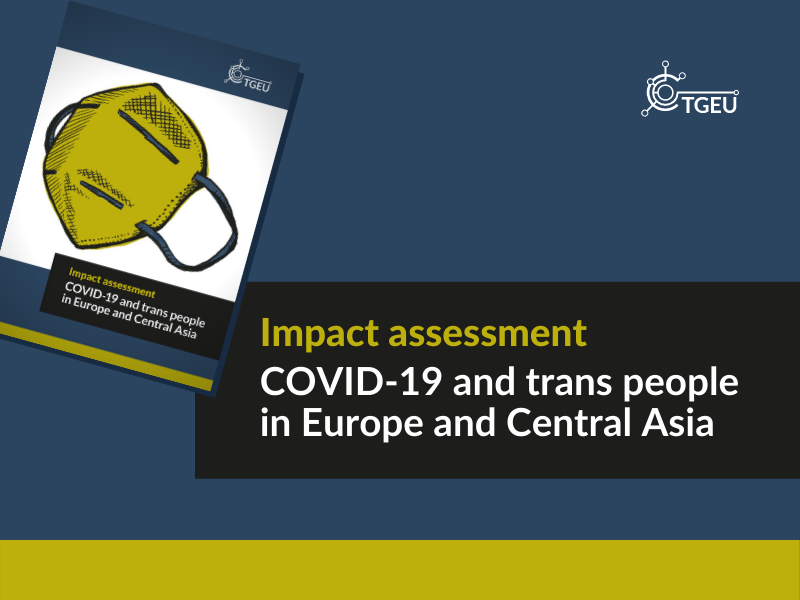Impact Assessment: COVID-19 and Trans People in Europe and Central Asia

In times of crises, it is those living in the margins that suffer the most. Since the pandemic outbreak, trans communities around the world have been disproportionately affected by COVID-19.
How have trans people in Europe and Central Asia been impacted by COVID-19?
In 2020, countless accounts of LGB and trans persons, undocumented migrants, refugees, sex workers, BPoC and Roma people, D/deaf and disabled individuals came to light about becoming severely ill, homeless, lacking food and medication, and facing violence and police abuse across the world. Those belonging to multiple of these groups, such as sex working trans women of colour, were especially disproportionately impacted.
Why this publication?
Although testimonies of community-based organisations around the world clearly illustrate this impact, disaggregated data on the basis of gender identity, ethnicity, or other characteristics have hardly been produced. To make up for it, TGEU has been monitoring the impact of COVID-19 on trans communities in Europe and Central Asia since March 2020.
What can I find in it?
This report takes an intersectional critical approach to the impact of COVID-19 on trans communities. Each chapter provides a brief overview of the pre-COVID-19 situation before illustrating the specific impact of the pandemic. It also includes a presentation of six community strategies that have attempted to revert escalating scenarios.
- Introduction to the COVID-19’s impact on minority and marginalised trans communities;
- Impact on health with two community-led resilience strategies;
- Impact on socio-economic status with 2 community-led resilience strategies;
- Impact on safety with two community-led resilience strategies;
- Timeline on increasing anti-trans attacks in 2020;
- Recommendations to policy makers, funders, and civil society.
We hope that this impact assessment will be used as an advocacy tool by local and national trans organisations and inspire further community strategies.